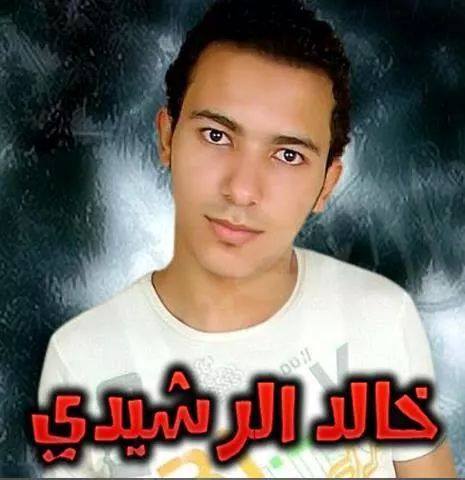Khaled Kamal Abul Magid El-Rashidi
After his military service Khaled was awarded a “Role Model” certificate from the Egyptian Armed Forces in which was written: “It is of great honor and pride that Unit K 363 would award an appreciation certificate to soldier: Khaled Kamal Abdul Majid El-Rashidi in appreciation for his efforts served and honor over the course of his service in the Armed Forces, as he was equipped with manhood, combat efficacy, and great character”.
After he finished his military service on August 1st, 2014, just three and a half months before he was killed, he started work as a sales representative at a pharmaceutical company. He was diligent in his job and was planning to start a family with his fiancee. He was also a member of the 6th of April Movement.
On the day he was killed he had taken off work 2 hours early and hurried home to pick up his mother so that they could meet up with his fiancee and purchase their engagement jewelry set. However, as they arrived they found the store closing its doors following sudden orders given by police forces roaming the streets. Police was carrying out a surprise attack on the street and started firing at random—Khaled was hit and fell to the ground.
Hossam, Khaled’s younger brother, said: “He was holding my hand and I suddenly felt his hand letting go. He fell on the ground next to me. I thought it was a simple matter of him losing consciousness, but when I held his head I found blood overflowing from the back of his head.”
Hossam hurried his brother to Al-Qasr Al-Ayni Hospital, but the hospital management didn’t rush in to rescue him. “They left him bleeding on the ground and they started interrogating us. ‘Where was he? Where were you? How was he shot?’” his brother retells. “And then all they did was put him on a ventilator machine”. Khaled died due to his injury, his friends, neighbors, and relatives sent him off in a dignified manner.
His sister said: “I received a phone call asking who had died in our household, but I wasn’t aware of anything so I turned on the television to be met with news of my brother’s martyrdom. I hurried home and I couldn’t find anyone since everyone was at the hospital. He wasn’t only my brother—he was my friend and my beloved person. If I wanted to take my kids out on a trip he was the one that would accompany us and if they were sick he was the one to take them to the hospital.”
Ahmed El-Rashidi, Khaled’s brother, had said in an interview after the murder: “What grave crime has my brother committed so that he would be killed in that way? He loved Egypt and he had photos showing pride in his military service”.
Khaled’s last will was to return an amount of 700 pounds that he found extra in the collectibles. He asked for the rightful owner to be found and returned the money returned, which is what his family did.




